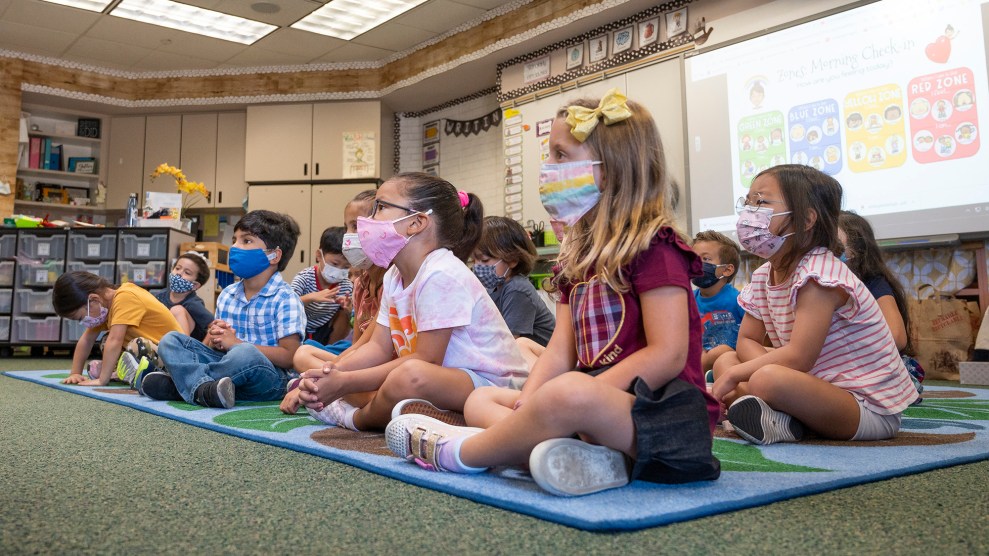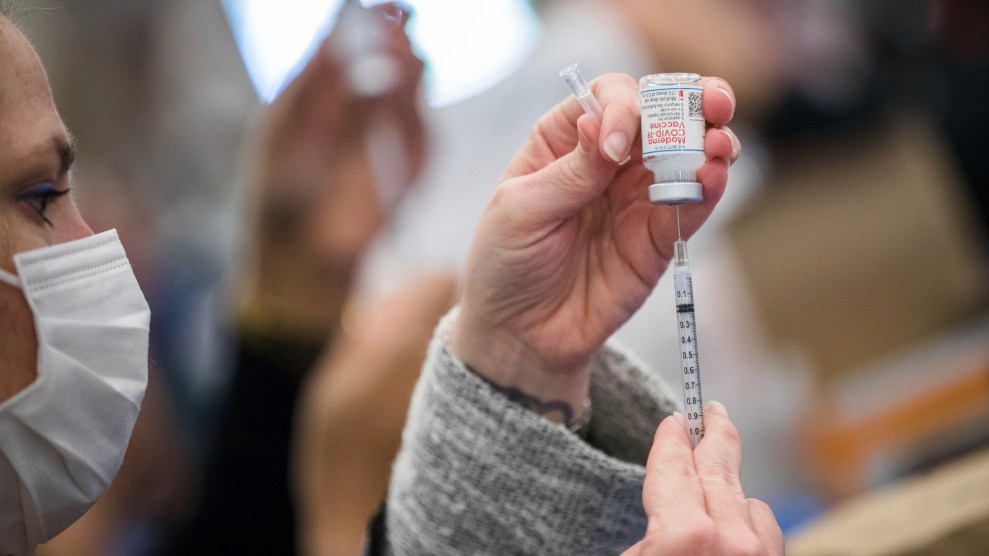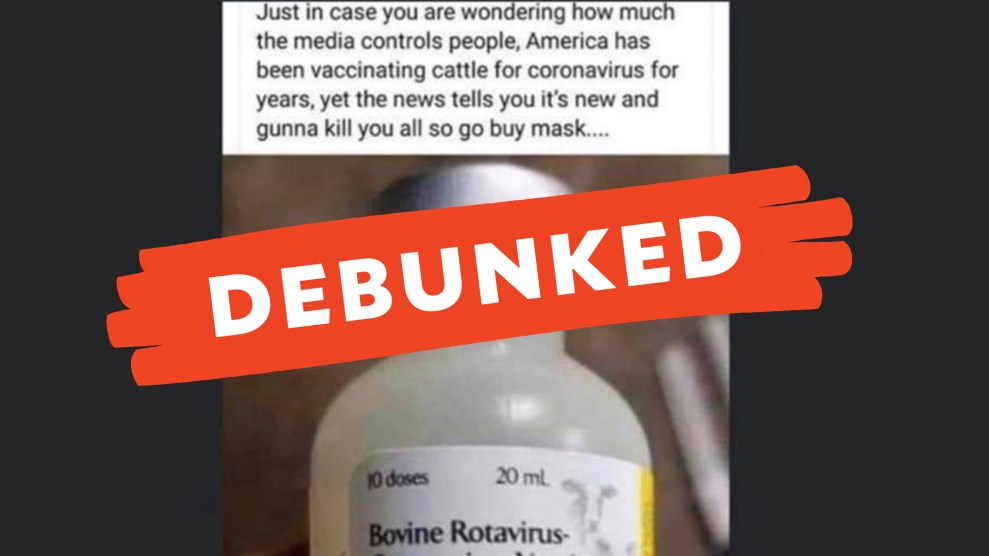
Students listen to their teacher during their first day of transitional kindergarten at Tustin Ranch Elementary School in Tustin, CA. Paul Bersebach/MediaNews Group/Orange County Register via Getty Images)Paul Bersebach/MNG/Orange County Register/Getty Images
On Tuesday, the Food and Drug Administration’s advisory committee recommended that the agency authorize Pfizer’s COVID-19 vaccine for kids ages 5-11. That approval could come any day now—listen closely, and you may hear a collective sigh of relief emanating from millions of parents.
But not everyone is celebrating: Anti-vaccine activists are already planting seeds of doubt. Among disinformation experts, there’s a strategy called “prebunking”—basically, educating people about the kinds of rumors they can expect to encounter. It’s like, well, an immunization—but for disinformation. In that spirit, here are five claims that anti-vaxxers are already making, along with the reasons they’re wrong.
1. “Almost all kids who get severe cases of COVID-19 have pre-existing conditions, so we don’t need vaccines for healthy kids that age.”
Nope: About a third of kids hospitalized with COVID-19 between March 2020 and June 2021 had no underlying conditions. What’s more, the conditions that can increase a child’s risk of severe COVID-19 are relatively common: They include asthma (7 percent of kids), immune-system problems, premature birth (nearly 10 percent), and obesity (20 percent). This year, COVID 19 is the sixth leading cause of death among 5-11-year-olds.
2. “The kids’ trial wasn’t big enough to detect potential harmful effects from the vaccine.”
It’s true that the size of the Pfizer trial for kids ages 5-11 was small—around 2,268 people, compared to about 44,000 in the adult trial. But here’s some context: Among teens, the most common serious side effect was inflammation of the heart muscle, called myocarditis. Almost all cases of this condition resolved, and the risk of suffering from myocarditis as a result of COVID-19 infection was far greater. There weren’t any cases of myocarditis in the kids’ trial. One reason for this could be that the dose of the shot is lower, about a third of that given to teens and adults. But it’s reasonable to believe that if this condition does crop up, it will follow a similar pattern to what we observed among teens.
3. “Parents of vaccinated teens have reported many severe side effects to the Vaccine Adverse Event Reporting System (VAERS), and the CDC/FDA/mainstream media/etc. is covering it up.”
This is a classic anti-vaccine talking point: Activists point to statistics from this government database as evidence that immunizations cause far more harms than are reported. The problem is that anyone can submit to VAERS, and the reports aren’t verified.
4. “Experts disagree about whether it’s a good idea to vaccinate kids.”
On Tuesday, when the FDA’s 18-person expert committee met to decide whether to recommend that the agency authorize the shot for kids ages 5-11, 17 experts said yes to the shot, and one abstained.
5. “The risk of severe side effects from the vaccine outweighs the risks of getting COVID-19 for this age group.”
If COVID-19 incidence were truly near zero, this would be true, epidemiologists have found. But save for in a few communities in the United States during a few weeks this past June, those conditions simply haven’t existed yet. Basing our vaccination decisions on a hypothetical optimistic scenario doesn’t make a lot of sense. And there’s good reason to believe that vaccine side effects will be uncommon: In the trial, only a handful of adverse events were reported—and none had anything to do with the vaccine. For example, in one case, a trial participant swallowed a penny (which is a side effect of, um, being a five-year-old).
There will be more claims that bubble up in the coming weeks. Be on the lookout for supposed miracle cures (think Ivermectin and hydroxychloroquine) that are touted as safer than vaccines and conspiracy theories about government control. Remember that preying on parents’ fear is a tactic in and of itself—and a remarkably effective one at that.
















